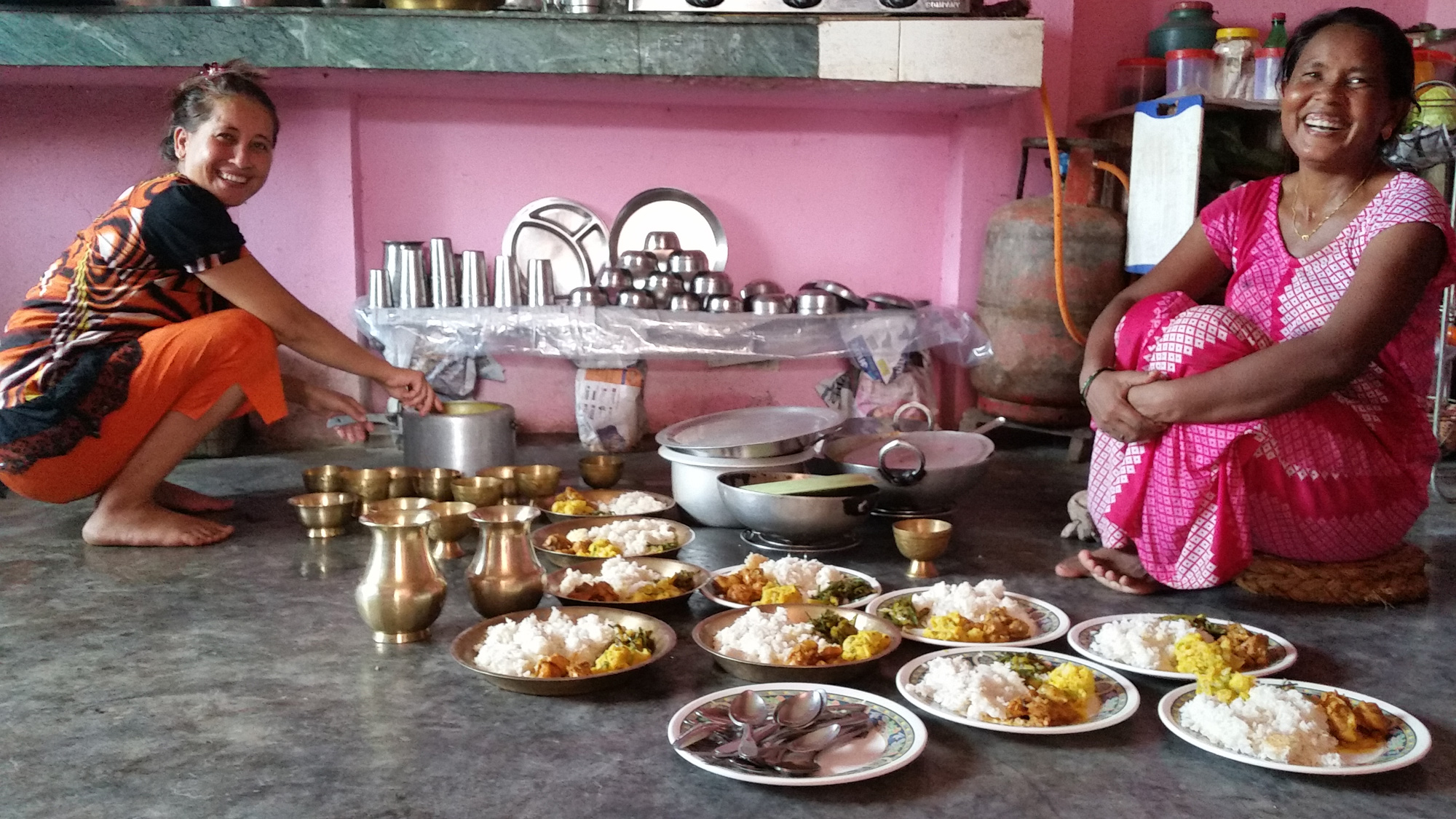Winter School "Microfinance in Action" in Nepal, 2016 (2nd Edition)

The Winter School “Microfinance in Action”, promoted by the the Human Rights Centre and supported by private donors, took place from the 24th of September to the 8th of October 2016.
Eight selected students from the Master's Degree in Human Rights and Multi-level Governance accompanied by Professor Alberto Lanzavecchia and by Luca Gazzola, technical assistant at the Human Rights Centre, flew from Milan to Kathmandu and travelled around different areas of Nepal in order to study on the field how microfinance can help developing countries in eradicating poverty and reducing inequalities in a human rights perspective.
Video-documentary "Microfinance in Action"
Presentation of the Winter School
The first part of this project was aimed at receiving an academic background on microfinance as an economic development instrument. The students worked together on the first week with other eight Nepalese students from the Apex College in Kathmandu. This workshop included not only frontal lectures held by Professor Lanzavecchia and by professors of Apex College, Kishore Dhungana and Bharat Thapa, on the comparison between microfinance in Nepal and Europe, but also encompassed institutional meetings with experts from microfinance institutions such as the Nepal Rastra Bank and the Centre for Microfinance.
After this academic exchange, the student had the possibility to experience how microfinance works on the field. Indeed, they visited farms and other business developed thanks to micro loans. Moreover, they were in a guest house run by one of the borrowers. These visits were guided by operators of a microfinance development Bank, Muktinath Bikas Bank Ltd., which is committed for good corporate governance practices and banking activities with prudent banking culture. The Muktinath Bikas Bank Ltd. is an active social actor in the region near Pokhara. Thank to its commitment, the students joined an environmental cleaning campaign aimed at mobilizing the civil society and rising awareness about this sensitive issue.
In Nepal, beside economic development, gender equality is one of the major human rights concerns. Thanks to the several meetings with women’s groups and cooperatives, the students had the possibility to experience how microfinance can be a fundamental tool to enhance women’s empowerment.
The second part of the Winter School was devoted to discover other realities in the Nepalese context more focused on human rights, gender inequalities, social discrimination and right to education. The group travelled to Butwal in the Terai region, in order to meet Aman Pariyar. Aman is a human rights defender and, with his association Farm House Nepal, has developed a comprehensive approach in eradicating poverty among marginalized people. Their activities range from training in farming techniques and supporting education to raising women’s rights consciousness, in cooperation with international experts.
The last days of the project were spent in Sindhupalchowk district, the region of Nepal most affected by the 2015 earthquake. In Meshipa, the students visited Shree Koldaung Devi Secondary School, damaged by the earthquake, in order to deliver the funds collected with the campaign “United for Nepal 2016”. This initiative was organised in Padova by the MA Human Rights and Multi-level Governance students with the aim to support the work of Sagarmatha International Foundation in this area. The group had the possibility to see the progresses in the reconstruction but also to talk with the teachers about further needs for this rural school’s development. They renewed the commitment and their will to further help them in the coming years.
The students who participated in the Winter School “Microfinance in Action 2016” are: Angela Bertocco, Giulia Cau, Martina Daelli, Ludovica Dal Molin, Erin Goblin, Szilvia Gulyas, Elisa Speziali, Pietro Vinti.

